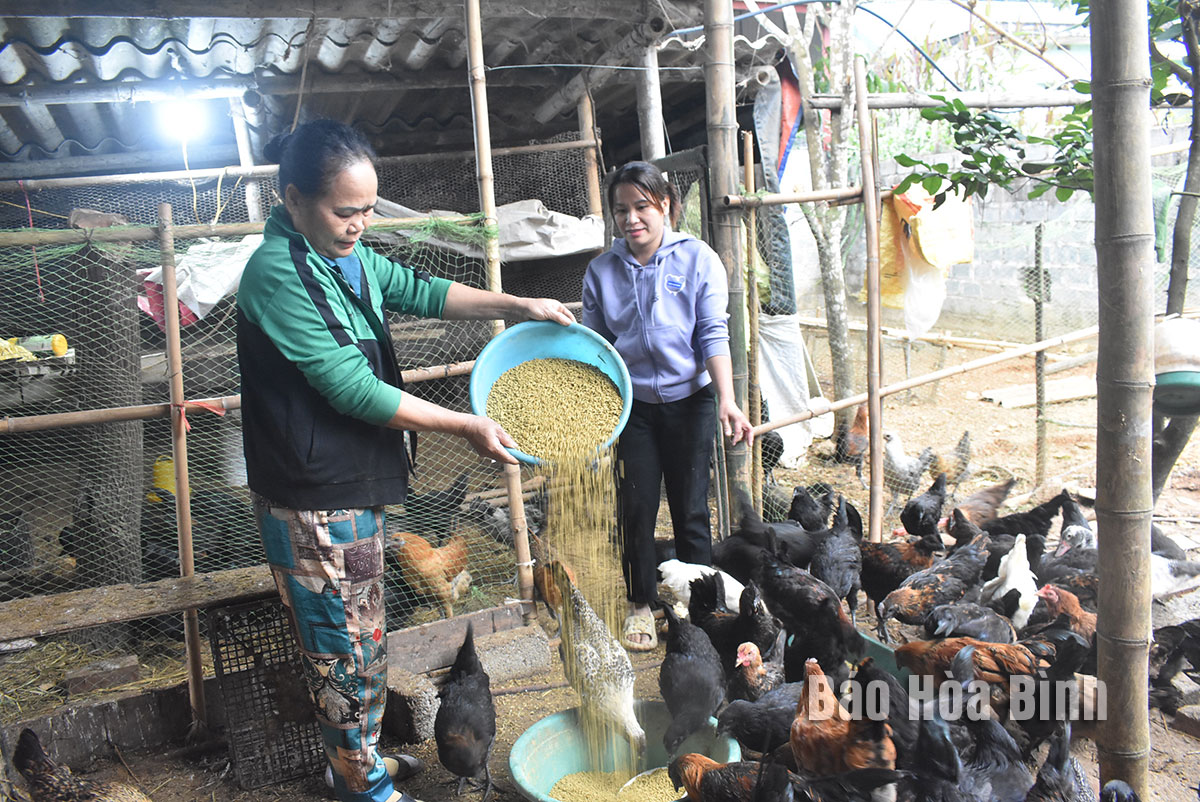
Black chicken farming model has changed the lives of vulnerable families in Mong Hoa commune of Hoa Binh city.
Ly’s fast-growing chickens.
According to Vice Chairman of the communal
People’s Committee Nguyen Van Bo, the project, part of the national target
programme on socio-economic development in ethnic minority-inhabited and
mountainous areas, has provided support for poor households, policy beneficiary
families, and people with disabilities.
Beyond economic benefits, the model has helped
enhance local people's agricultural knowledge, provides safe products for the
market, and creates a learning platform for other farmers, he said, expressing
his hope that it will be multiplied to improve local livelihoods.
Nguyen Thi Ly, a beneficiary with eight family
members, most of whom are either too young or too old to work, exemplifies the
project's positive impact. In August 2024, she received support to raise 180
black chickens, along with 45 bags of feed which are enough for the poultry
until they sold to the market.
Ly said she knew black chickens are economically
valuable but her family couldn't afford to start. With support from the city’s
agricultural service centre regarding breeding stock and feed, the chickens
have reached an average weight of 1.7-1.8 kilogrammes and attracted the
interest from local merchants.
Similar success stories come from her
neighbours. Nguyen Thi Hong, a disabled resident, and Bui Van Thai, another
participant with physical limitations, have both successfully raised healthy
chicken flocks. Thai noted the remarkable growth rate, which is two to three
times faster than traditional farming methods.
After the Lunar New Year (Tet) holidays, trade union members and workers in Hoa Binh province returned to work with an excited spirit at the beginning of the new spring. Throughout the workshops, factories and enterprises, they were full of enthusiasm, immediately getting to work, striving to excellently complete tasks and production and business targets.
Red grapefruit is a native crop of Tan Lac district, where the fertile soil and favourable climate create ideal conditions for its growth. With over 80% of the area being mountainous, at an altitude of 300-400 metres above sea level, red grapefruits here thrive on well-drained, fertile hillside soil. The region’s large temperature variation between day and night enhances the fruit's nutrient absorption. The local cultivation techniques also contribute to its uniqueness
The provincial business association recently convened a conference to review its 2024 operations and outline plans for 2025. The meeting was attended by Standing Deputy Secretary of the provincial Party Committee and Chairman of the provincial People’s Committee Bui Duc Hinh along with leaders from various departments and agencies.
Hoa Binh province is prioritising rural transportation infrastructure to improve mobility, facilitate trade, and boost socio-economic development.
The Minister of Agriculture and Rural Development has just issued Decision No. 377/QD-BNN-VPĐP approving the results of the evaluation and classification of the products of the National One Commune One Product Program in 2024 (phase 3).
As the Lunar New Year (Tet) approaches, the market becomes more vibrant than ever. In Hoa Binh province, preparations for Tet have been bustling since the 20th of the last lunar month, with an abundant supply of goods to meet the growing consumer demand.



